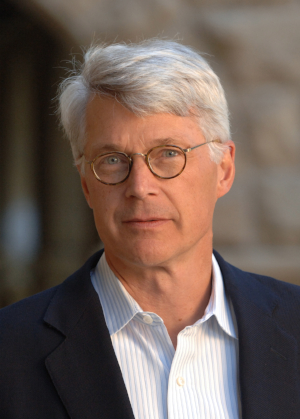Revisiting Hiroshima in Iran
Breadcrumb
17:30 - 17:30, 30 November 2016
Lecture Theatre 1, Blavatnik School of Government, Radcliffe Observatory Quarter, Woodstock Road, Oxford OX2 6GG
Numerous polls demonstrate that U.S. public approval of President Truman’s decision to drop atomic bombs on Hiroshima and Nagasaki has declined significantly since 1945, with less that 50% support now compared to 85% support in 1945. Many scholars and political figures have suggested that this is evidence of the emergence of a “nuclear taboo” and a “non-combatant immunity norm.” New survey experiments, however, demonstrate that a majority of Americans would approve of nuclear weapons attacks against Iran to avoid U.S. military casualties in the future, suggesting that a “nuclear taboo” has not taken hold among the U.S. public and that support for non-combatant immunity is shallow.
Join Scott D. Sagan of Stanford University as he discusses these issues, and the findings of a three-year project - undertaken by the American Academy of Arts and Sciences - titled New Dilemmas in Ethics, Technology and War.
 This talk is free and open to all. Registration is now closed.
This talk is free and open to all. Registration is now closed.
Biography
Scott D. Sagan is the Caroline S.G. Munro Professor of Political Science, the Mimi and Peter Haas University Fellow in Undergraduate Education, and Senior Fellow at the Center for International Security and Cooperation and the Freeman Spogli Institute at Stanford University. He also serves as Project Chair for the American Academy of Arts and Sciences’ Initiative on New Dilemmas in Ethics, Technology, and War and as Senior Advisor for the American Academy of Arts and Sciences’ Global Nuclear Future Initiative.
He is the author of Moving Targets: Nuclear Strategy and National Security (Princeton University Press, 1989); The Limits of Safety: Organizations, Accidents, and Nuclear Weapons (Princeton University Press, 1993); and, with co-author Kenneth N. Waltz, The Spread of Nuclear Weapons: An Enduring Debate (W.W. Norton, 2012). In 2015, Sagan received the National Academy of Sciences William and Katherine Estes Award for his pioneering work addressing the risks of nuclear weapons and the causes of nuclear proliferation. The award, which is granted triennially, recognizes research in any field of cognitive or behavioral science that advances understanding of issues relating to the risk of nuclear war.
